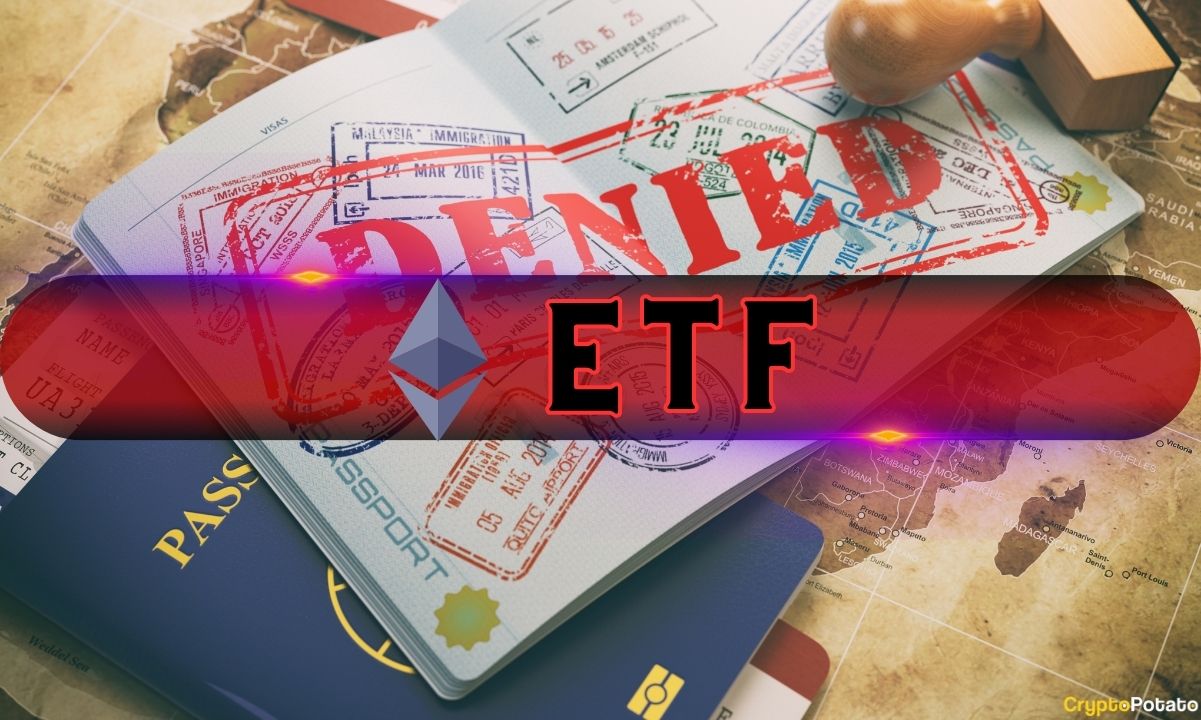
Crypto industry experts believe Ethereum (ETH) spot ETFs will likely be denied approval for public trading by regulators next month.
A denial would likely mean U.S. investors receive no product of the sort until December 2024 at the earliest, putting the digital currency well behind Bitcoin (BTC) in terms of adoption by Wall Street.
Why Are Ethereum ETFs Unlikely?
Sources contacted by Reuters say the few meetings between the Securities and Exchange Commission (SEC) and aspiring Ethereum ETF issuers have been one-sided.
Staff from the agency have not discussed substantive details about the proposed products, despite the deadline for applications sent by VanECK and ARK being due in less than one month.
That’s a stark contrast from internal conversations preceding Bitcoin spot ETF approvals in January, during which regulators helped sponsors fine-tune their applications for months around details like in-kind versus in-cash redemptions.
“It seems more likely that approval will be delayed until later in 2024, or longer,” said Todd Rosenbluth, head of ETF analysis at VettaFi. “The regulatory picture still seems cloudy.”
Sources say that ETF issuers’ arguments in favor of approval mainly surround the listing of Ethereum futures ETFs in October, setting a precedent that ETH-based investment products are safe enough for public markets.
Such arguments mirror those from Grayscale when it sued the SEC over Bitcoin spot ETF denials in 2022. Grayscale’s resounding victory in that lawsuit one year later largely inspired the agency to approve the ETFs.
However, the SEC generally did not pose specific counter questions, implying that they aren’t considering applications seriously and will deny them anyway.
Will There Be Another Lawsuit?
“It’s entirely possible we’ll eventually see ether ETFs,” one source said. “But not until somebody is denied and goes to the courts.”
Earlier this month Bloomberg ETF analyst Eric Balchunas suggested that Grayscale may not want to fund another lawsuit, since their potential financial reward would be smaller.
“That’s a lot of time and money for something that may only get a fraction of the aum,” he wrote at the time.
SEC chairman is openly critical of crypto in a personal capacity, claiming it has few unique use cases besides illicit financial activity, and is fundamentally centralized.
According to Bitwise Chief Investment Officer (CIO) Matt Hougan, the SEC may justify its Ethereum ETF denial by saying its had little time to review the product.
“I think that would be the mechanical reason why it would get pushed out is they just want to see more data.”
This article first appeared at CryptoPotato

